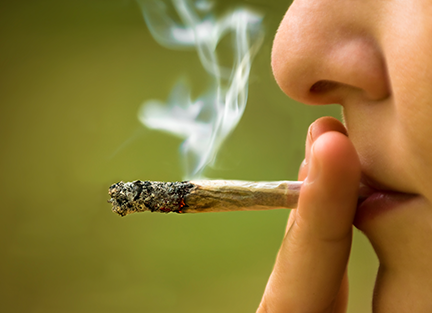In the war on teen drug abuse, there’s good news and bad news.
First, the good: The annual Monitoring the Future survey, released in December, found that use of some illicit drugs had either plateaued or declined. The survey, which polled 44,482 students from nearly 400 public and private schools nationwide, also showed a drop in binge drinking, along with lessened abuse of prescription opioids — a class of painkillers that includes morphine, OxyContin and Percocet to name a few.
Now for the bad news: The battle against this ongoing scourge is far from won, particularly in Mississippi and the local area.
“In this region, teenage drug use is a huge problem — one that many have not yet addressed,” says Shelbi Lewis, a substance abuse counselor at New Season Biloxi Treatment Center.
Lewis cites statistics from the Office of Adolescent Health, within the U.S. Department of Health and Human Services, which show marijuana use among high school students in Mississippi stood at 35 percent — compared to the national average of 39 percent. Inhalant use in the state was at 12 percent, with the national average at 7 percent. Cocaine use also was slightly higher in Mississippi — 7 percent compared to 5 percent nationally.
“These numbers are alarming and scary,” Lewis says. “This shows that, on average, the amount of substance use is higher in this state than the national average.”
Lewis also stresses that all teens are targets for drug use — not just those from impoverished or abusive backgrounds.
“I think that teens are susceptible to this problem because it is readily available in many places and it is glorified in music, TV shows and social media,” she says. “Rappers, comedians, and actors all portray ‘the good life of getting high.’ Nothing today is censored for our children.”
Statistics show that once teens develop a drug abuse habit, they are far more likely to battle addiction as adults. Lewis reports speaking to over 30 people per day who admit that they started using illicit substances at age 12 or earlier.
A parent’s best defense is remaining vigilant, she says, and recognizing the signs that their child could be in trouble. Some indicators to look for include behavioral changes, such as poor academic performance, skipping school or defiant actions; psychological changes, like mood swings, lower motivation or slurred/rapid speech; health issues, such as sleep disturbances, constant headaches, appetite changes or profuse sweating; and changes in personal appearance, like poor hygiene, burns or the smell of illicit substances.
“Parents should always check to see if they find things such as paraphernalia, large or hidden amounts of cash or any kinds of residue from drugs or alcohol,” Lewis says.
If a teen has an addiction issue, Lewis says parents should seek out a medical professional, who can help through periods of withdrawal or intoxication. Next, they should enlist a mental health professional to address the underlying cause of the substance abuse.
Finally, she advises finding a mentor or a mentorship program, which offers the teen “an outlet and a safe place.”
“Parents should also strive to be more engaged with their child, even if it is 30 minutes to one hour per week, spending more time talking and doing activities,” Lewis says.
While her facility only accepts adults over 18, Lewis says, staff usually can refer parents to other agencies and resources depending on their needs. New Season Biloxi Treatment Center can be reached at (228) 207-1248.


